Is Cat Years the Same as Human Years? Cat-Years vs Human-Years 🐱⏳

Is Cat Years the Same as Human Years? How Old Is My Cat In Human Ages? ![]()
We often hear that one human year is equivalent to seven dog years, but what about our feline friends? How do cat years translate to human years? Understanding your cat’s age in human years can help you provide the best care for them at each stage of their life.
In this article, we’ll explore the different stages of a cat’s life and how they compare to human years.
Kitten: The First 10 Human Years 🐾

The first stage of a cat’s life is the kitten stage (0 - 7 months), which is equivalent to the first 10 years of a human’s life. During their first month, newborn kittens are fed exclusively with breast milk. Weaning onto solid food begins at four to five weeks, starting with wet food or moistened kitten feed.
The first three months with their mother and siblings are a vital stage for learning behaviors and boundaries. It’s important to meet a kitten’s needs during this time to ensure their health and well-being. This includes getting kittens used to situations such as traveling in a carrier, interacting with other animals, getting used to noise, and visits from strangers. ![]()
Adolescent or Young Cat: 11 to 27 Human Years 🐈
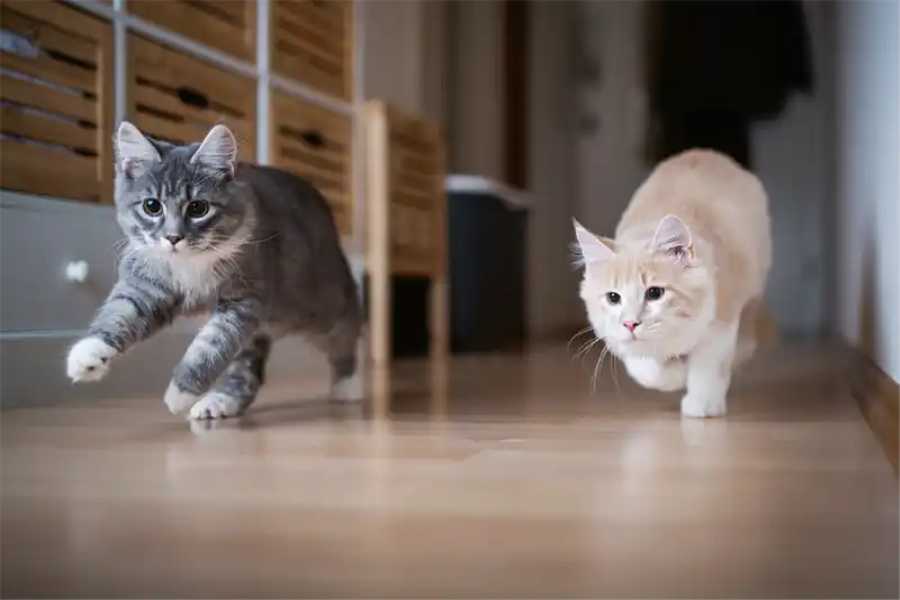
The next stage of a cat’s life covers their first 7 months to 2 years, corresponding to around 11 to 27 years in a person. This is the equivalent of their adolescence and youth. At seven months old, they are practically adult size and sexually mature. These cats are already strong and playful with lots of energy and a desire to explore and play.
If they’ve not been sterilized, hormones begin to do their thing when sexually mature. This leads to the heat period in female cats, which includes loud meowing and general frustration. Males will often fight with others and try to escape in search of females. Both will mark territory. ![]()
Young Adult: 28 to 43 Human Years 🐈
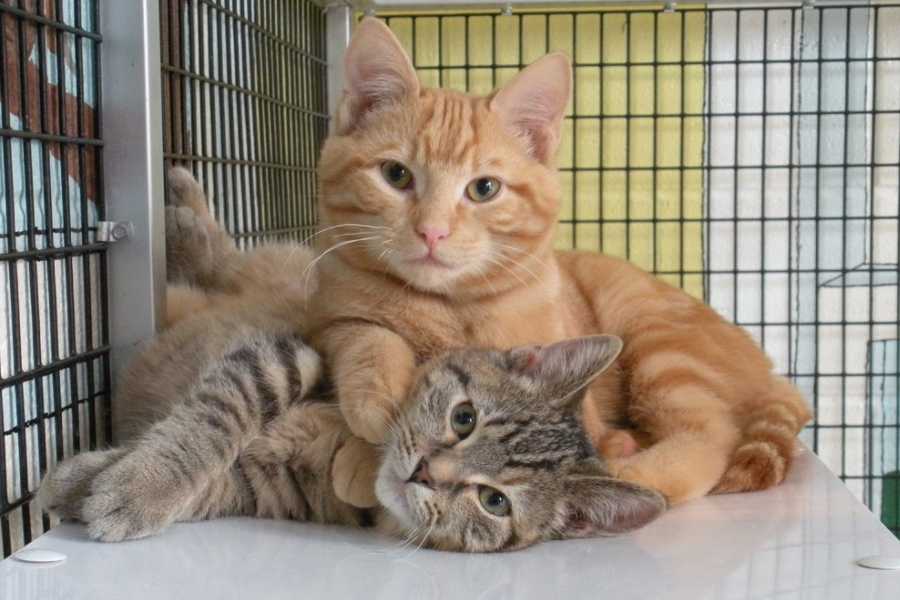
The young adult stage (3 years - 6 years) of a cat’s life spans from three to six years, equivalent to a person of about 28 to 43 human years. Cats at this age already have their personality and behavioral traits defined.
They are often playful and their energy levels remain high. It’s important to continue adjusting their daily food rations to their age and specific circumstances to avoid weight gain. ![]()
Mature Cat: 44 to 59 Human Years 🦁
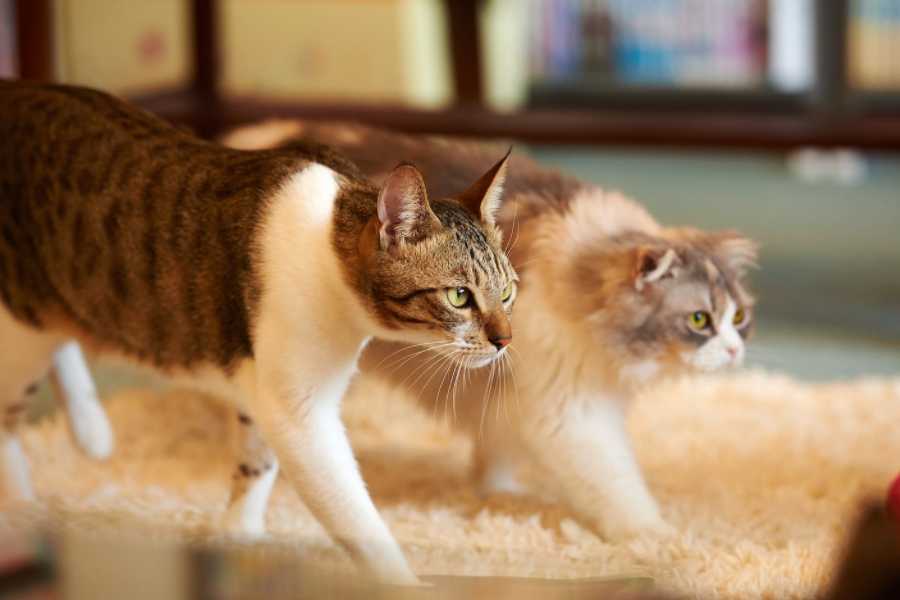
The mature stage (7 years - 11 years) of a cat’s life, equivalent to a person of between 44 and 59 years of age, is when cats progressively reduce their energy levels and desire to play, devoting a little more time to rest.
If we don’t continue adjusting their daily food rations, they can gain weight. Once they reach this stage, it’s important they have at least one veterinary checkup per year. ![]()
Senior Cat: 60 to 75 Human Years 👵🐱
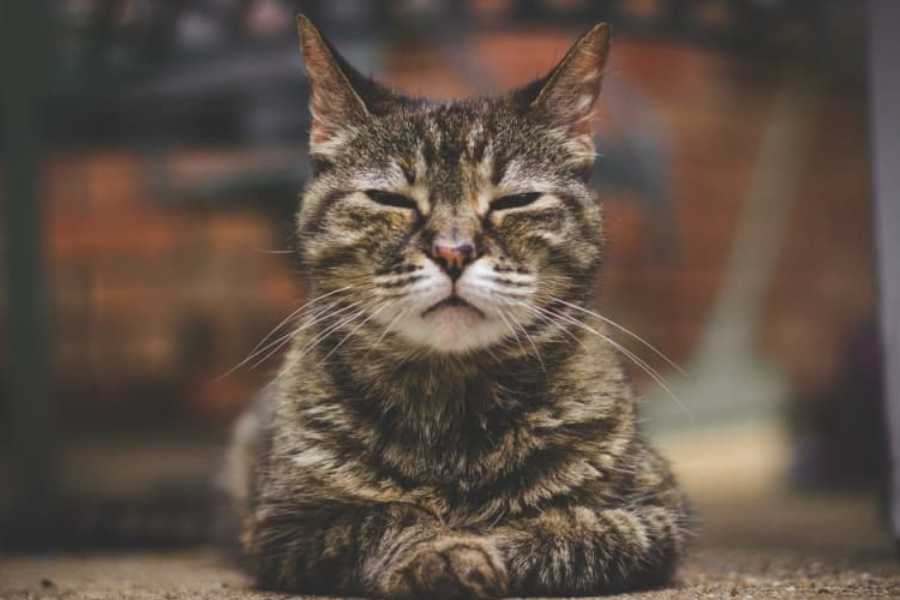
The senior stage (11 years - 14 years) of a cat’s life, from 11 to 14 years, is equivalent to 60 to 75 human years. At this age, cats tend to rest a lot and play much less. It’s common for chronic diseases to develop or worsen.
It’s essential they have at least one annual veterinary checkup and they should go whenever any symptoms of disease appear. From this age, serious health problems such as tumors become more frequent, which can reduce their quality of life and life expectancy. ![]()
Geriatric Cat: The Last Years of a Person’s Life 👴🐱
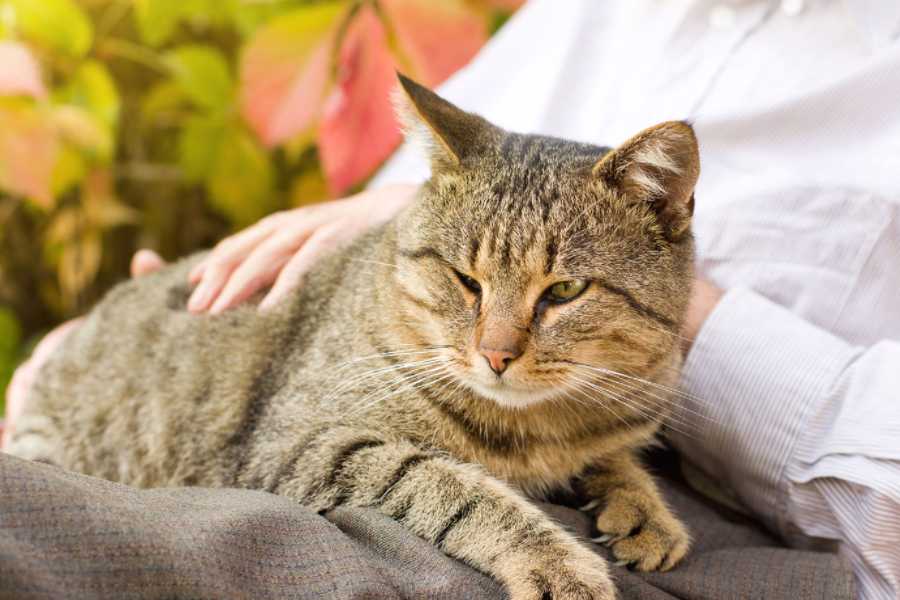
When a cat is 15 years or older, it corresponds to the last years of a person’s life. Cats at this age can suffer from chronic bone and joint diseases such as osteoarthritis. It is also common for them to develop neurological disorders such as dementia, which can manifest in nocturnal meowing, problems, and behavioral issues such as urinating and defecating outside the litter box, and hiding.
Veterinary checkups should be frequent, especially in sick cats, and the diet should be adjusted to their new needs. ![]()
Conclusion: Understanding Your Cat’s Age 🐾

Understanding your cat’s age in human years can help you provide the best care for them at each stage of their life. From the playful and exploratory kitten stage to the restful and quiet senior years, each stage of a cat’s life presents unique challenges and joys.
By understanding these stages, you can ensure your feline friend gets the care they need to live a long, healthy, and happy life.
For more information on cat behavior and health, check out our other articles on why cats have watery eyes and what to do when your cat is in heat. At pawsadviser.com, we’re dedicated to providing you with the most accurate and helpful information to keep your feline friends happy and healthy. ![]()
Tags
Share
Table Of Contents
Related Posts
Quick Links

